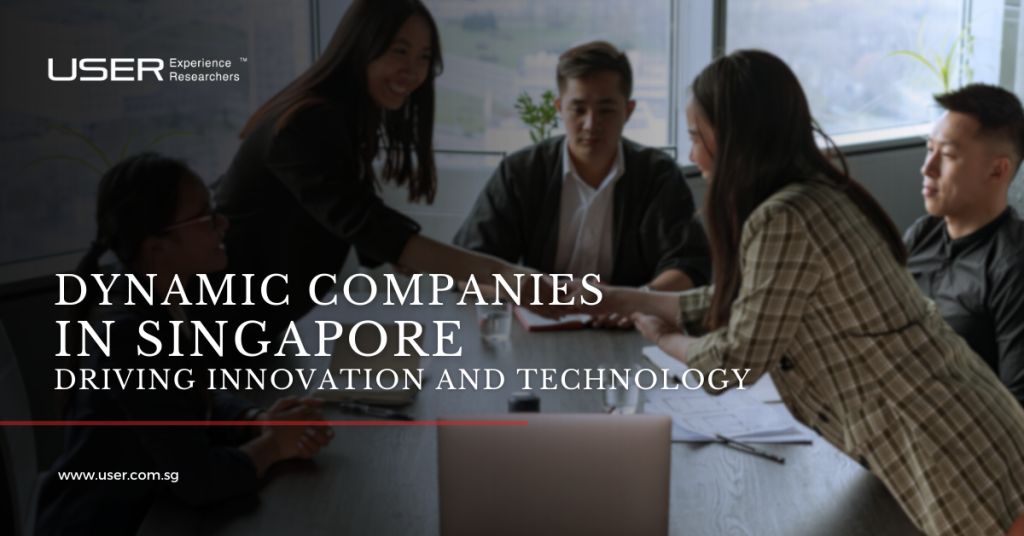
Dynamic companies are entities known for their agility, innovation, and ability to adapt to rapidly changing markets. In Singapore, these companies thrive due to a convergence of favorable business policies, robust infrastructure, and a tech-savvy workforce. Their strategies often include leveraging advanced technologies, fostering an innovation-driven culture, and pursuing sustainable growth practices.
Examples of Dynamic Companies in Singapore
Singapore is home to several trailblazing companies across various industries. From technology giants like Grab to fintech innovators such as Stripe, manufacturing leaders like Dynamic Optronics, and enterprise service providers like User Experience Researchers, these organisations epitomise dynamism through their adaptability and technological prowess.
Characteristics of Dynamic Companies
What sets dynamic companies apart? Here are the key traits:
- Agility: The ability to pivot strategies and operations in response to market changes.
- Innovation-Driven Culture: A commitment to fostering creativity and pioneering solutions.
- Technology Adoption: Leveraging cutting-edge technologies like AI, robotics, and IoT to stay ahead.
- Sustainability: Integrating eco-friendly practices and sustainable solutions into their business models.
Why Singapore is a Hub for Dynamic Companies
Singapore’s unique ecosystem offers unparalleled support for dynamic companies. Factors contributing to this include:
- Government Support: Policies like the Smart Nation initiative and grants for startups and SMEs create a fertile ground for innovation.
- Tech-Savvy Workforce: A highly educated and adaptable labor pool skilled in emerging technologies.
- Robust Infrastructure: World-class facilities and connectivity to support seamless business operations.
- Favorable Business Environment: Low tax rates, ease of doing business, and strong intellectual property laws.
Leading Dynamic Companies in Singapore
Dynamic Optronics: Pioneering Optoelectronic Innovations
Dynamic Optronics stands at the forefront of optoelectronics in Singapore. The company’s state-of-the-art products and solutions have significantly advanced industries such as telecommunications and medical devices. Their commitment to R&D and collaboration with global tech leaders underscores their pivotal role in Singapore’s tech landscape.
Fintech Giants: Shaping Financial Innovation
Singapore’s fintech sector is a cornerstone of its dynamic economy. Companies like Grab Financial, Revolut, and Wise are revolutionising financial services, making them more accessible and efficient. These fintech pioneers are driving innovation through AI, blockchain, and customer-centric platforms.
Technology and Workforce in Dynamic Companies
Technology and workforce development are central to the success of dynamic companies. By adopting advanced tools and fostering a culture of continuous learning, these companies ensure sustained growth and competitiveness. Companies such as User Experience Researchers are at the forefront of helping even global corporations move forward by providing key user-focused technology services and staffing solutions.
Role of AI and Robotics in Business Transformation
AI and robotics are revolutionising industries in Singapore. For instance, Boston Dynamics’ robotics applications are enhancing efficiency in logistics, healthcare, and manufacturing. These technologies are enabling businesses to automate processes, reduce costs, and innovate at scale.
Upskilling and Workforce Trends
To stay competitive, companies prioritise upskilling initiatives. Programs like SkillsFuture provide resources for workers to acquire new skills, ensuring a future-ready workforce capable of navigating the evolving demands of dynamic industries.
Challenges and Opportunities for Dynamic Companies in Singapore
Addressing Market Challenges
Dynamic companies face challenges such as global competition, regulatory hurdles, and shifting consumer demands. Strategies to navigate these include:
- Collaboration: Partnering with other businesses and institutions to pool resources and expertise.
- Innovation: Staying ahead through continuous R&D and market analysis.
Capitalising on Opportunities
Emerging sectors like renewable energy, biotechnology, and AI offer immense opportunities. By aligning with global sustainability goals and investing in disruptive technologies, Singapore’s dynamic companies can unlock new growth avenues.
Future Trends and Insights
The future of dynamic companies in Singapore is bright, with trends pointing towards:
- Sustainability: Integrating eco-friendly practices into operations.
- Digital Transformation: Adopting advanced digital tools to enhance efficiency and innovation.
- Global Expansion: Leveraging Singapore’s strategic location to access international markets.
Conclusion
Dynamic companies in Singapore represent the pinnacle of innovation and adaptability. As they continue to evolve, they will undoubtedly shape the future of industries, both locally and globally, solidifying Singapore’s position as a hub for cutting-edge technology and business growth.
FAQ
What defines a dynamic company?
Dynamic companies are characterised by their adaptability, innovation, and focus on sustainable growth.
Why is Singapore a preferred destination for innovative businesses?
Singapore’s robust infrastructure, government support, and tech-savvy workforce make it an ideal hub for innovation.
Which industries house the most dynamic companies in Singapore?
Key industries include technology, fintech, manufacturing, and biotechnology.
How does government support contribute to the success of dynamic companies?
Initiatives like the Smart Nation program and grants for innovation foster a thriving ecosystem for dynamic companies.
What is the role of technology in driving business growth for dynamic companies?
Technology enables automation, enhances efficiency, and opens new avenues for innovation and market expansion.
Can startups be considered dynamic companies?
Yes, startups often epitomise dynamism due to their agility and innovative approaches.
What workforce trends are shaping Singapore’s business landscape?
Trends like upskilling, remote work, and tech-driven collaboration tools are shaping the workforce.
How do dynamic companies tackle global competition?
Through innovation, strategic partnerships, and leveraging Singapore’s global connectivity.
What are the main challenges faced by dynamic companies in Singapore?
Key challenges include global competition, regulatory complexities, and rapidly changing market demands.
How can businesses leverage Singapore’s ecosystem to grow dynamically?
By tapping into government support, leveraging a skilled workforce, and adopting advanced technologies.


